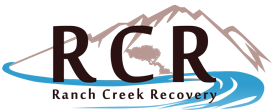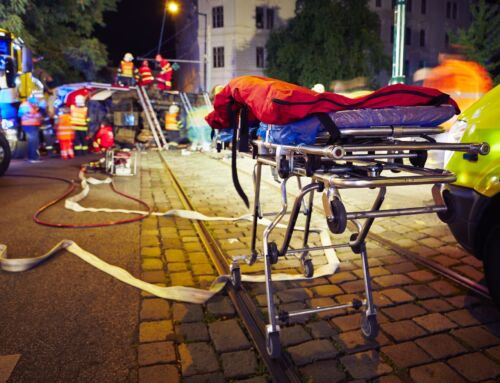For anyone who has conquered the disease of addiction, achieving that accomplishment is no small feat. It requires a person to look deep within themselves in order to confront their demons and summon the courage to face them head on.
The path to recovery is similar to climbing a mountain: the journey is long and, at times, seemingly impossible. But through faith, encouragement and persistence, overcoming any addiction, like climbing any mountain, is achievable.
Arriving at a place where sobriety has been accomplished, and life has transitioned into a safer and healthier state, is something to celebrate – but avoiding relapse triggers needs to be constantly monitored.
No matter how long a loved one has maintained their sobriety, the manner in which a relapse trigger can spark their desire to fall back into an addictive pattern is always present. That is why being there to provide reassurance and inspiration when your loved one needs it most is a key role you can play in their continued sobriety.
Learning what a relapse trigger is, and how they impact your loved one’s substance abstinence is a great first step to helping them avoid unnecessary scenarios in which the temptation to relapse is tested.
What is a Relapse Trigger?
Simply put, relapse triggers are those things within your loved one’s environment that can cause them to crave their substance of choice and drive them back toward their addiction.
These triggers can be both external and internal cues that remind your loved one of their addictive past and ignite within them a desire to use again.
While relapse triggers are not automatically indicative of an actual relapse, they plant the seed of relapse and negatively encourage your loved one to fall back into a lifestyle they have worked so hard to overcome.
The fact of the matter is that over 40 to 60% of people who achieve sobriety will relapse at some point.
Working to identify your loved one’s relapse triggers and providing them support and encouragement can make all the difference between someone who maintains their sobriety and someone who succumbs to the overwhelming pressures of their addiction.
Common Relapse Triggers and Warning Signs
While every person dealing with an addiction and embarking on their recovery journey will experience different struggles and relapse triggers, there are a few key examples that statistically impact a larger number of the population.
Being able to spot these warning signs, or the environmental cues, before they grow into a full-blown relapse can be an amazingly effective way to help your loved one successfully maintain their sobriety.
These include:
- Moments of Personal Stress
Whether you are a recovering addict or completely sober, life is full of stressors and difficult scenarios. For those dealing with the disease of addiction, stress has a tendency to push them back toward their addiction when they are facing stressful situations. If you think about it, it makes sense that stress would be a key instigator of relapse.When people feel overwhelmed or an excessive amount of stress, they typically fall back to whatever makes them comfortable. For people who struggle with anger, stress can cause them to lash out aggressively.For those struggling with a substance addiction, stress can drive them back to their addiction in order to relieve themselves of whatever it is that is overwhelming them. - Times of Celebration
We live in a world where every day can seem like a holiday. From birthdays to national holidays to family celebrations, the reason to have drinks or cut loose with family and friends is seemingly never-ending.For a loved one trying to avoid a relapse, navigating these holidays and celebratory events can prove to be a difficult task. After all, completely avoiding holidays and events is counterproductive because a person working on their recovery needs the strength and support of their friends and loved ones.However, going to a holiday party or family celebration can put a recovering addict in a scenario where they are confronted with alcohol, or even drugs, tempting them beyond control and triggering their relapse. - Persons, Places and Things
This final example is a bit more ambiguous because it differs for each and every addict. It is referencing the people they may have abused drugs or alcohol with, the places they commonly went to feed their addiction and the things that remind them of the times when their addiction ruled their lives.These physical relationships and reminders can trigger your loved one into remembering their past addiction, and maybe even romanticizing the effects their addiction had on their well-being.
Triggers for Addiction Relapse: There is Always Help for Your Loved One
These triggers provide just a few examples of the ways in which your loved one can find themselves faced with the desire to relapse. While the list of potential triggers may seem endless at times, it is important to remember that there is help.
Treatment facilities work directly with recovering addicts to identify all of the potential triggers they may face throughout the course of their recovery journey and construct a plan to overcome those triggers if and when they arise.
The disease of addiction is like any other illness, it requires clinical guidance and professional help to properly address the symptoms and overcome the disorder. Working with your loved one to find a treatment facility that can help them along their recovery journey is the best way of ensuring they receive the care and support they will undoubtedly need along the way.
Holistic Addiction Treatment and Relapse Prevention Therapy at Ranch Creek Recovery
At Ranch Creek Recovery, we are confident that our addiction treatment programs and relapse
prevention therapy can work for addicts who are serious about ridding their life of addiction.
We believe that relapse can happen to anyone, but your rehabilitation route can mean all the difference and better prepare you for the challenges ahead. We address addiction recovery and relapse prevention head on through our non-12-step, individualized, holistic addiction treatment programs.
Our team of treatment experts will work one-on-one with you to create a custom treatment and recovery plan that will help you feel confident and ready to enter your new, sober life.
Learn more about Ranch Creek Recover, including what we offer and what we treat. Have questions? We’re here to help in any way we can. Contact us today.













